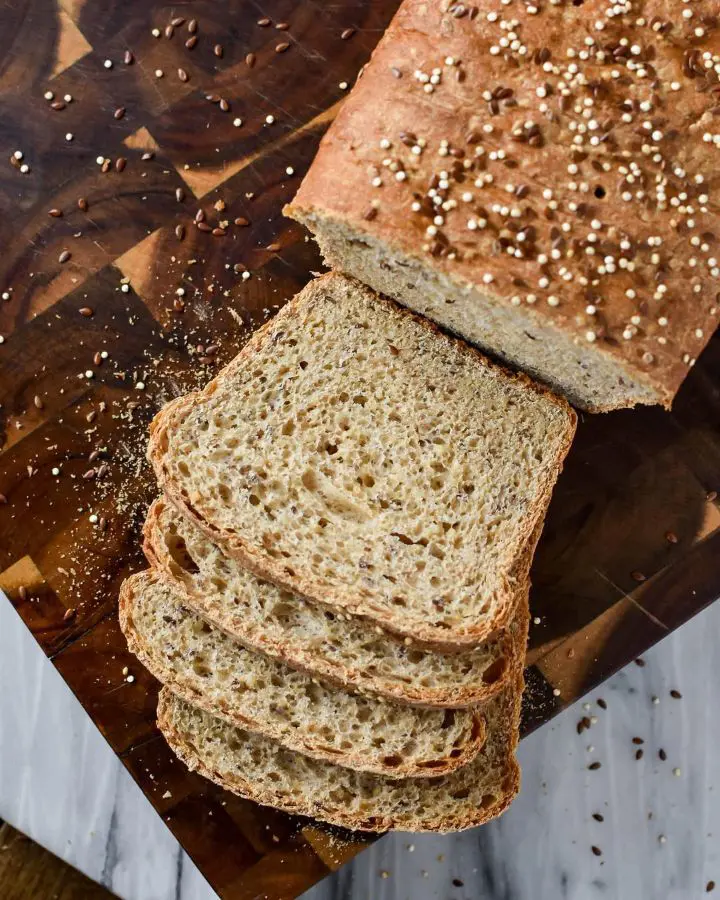15 Low Calorie Fruits for Healthy Snacking
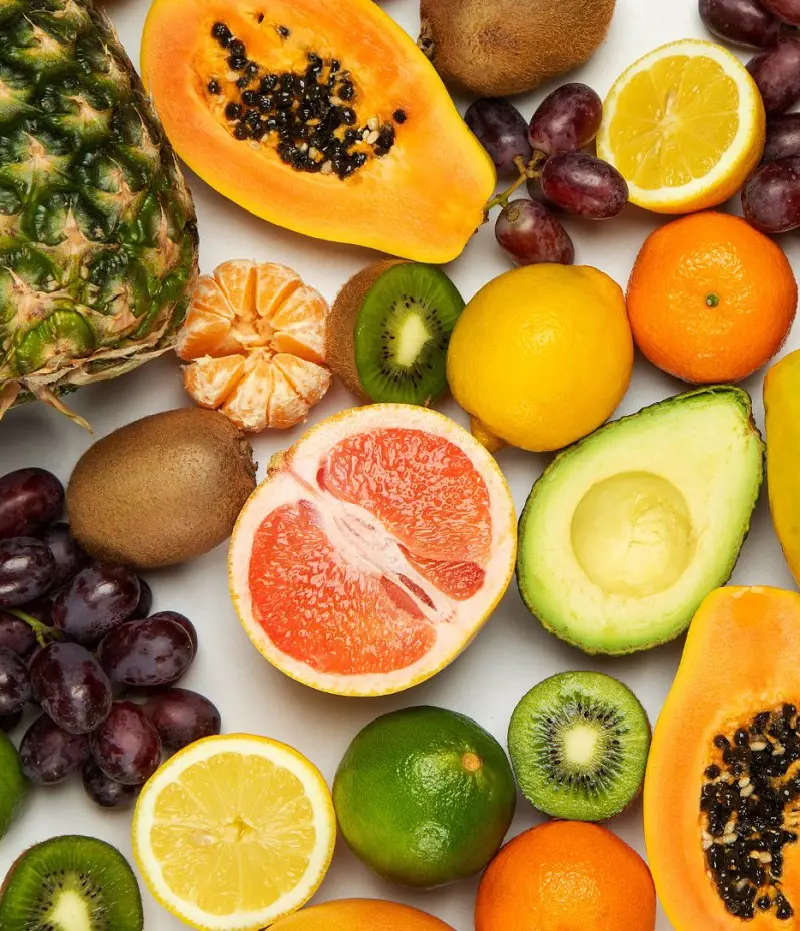
This post may contain affiliate links. If you make a purchase through links on our site, we may earn a commission.
In the quest for healthier snacking options, incorporating fruit with the least calories into your diet is a simple and flavorful way to satisfy your cravings while keeping an eye on overall calorie intake. These healthy fruits contribute to your nutritional well-being and offer natural sweetness and essential nutrients.
From the juicy goodness of water-rich options to the fiber-packed delights, these fruits are delectable options that even support your journey toward a healthier lifestyle. So, let's explore 15 nutritious and tasty low-calorie fruits that can effortlessly elevate your snacking game.
1. Melons
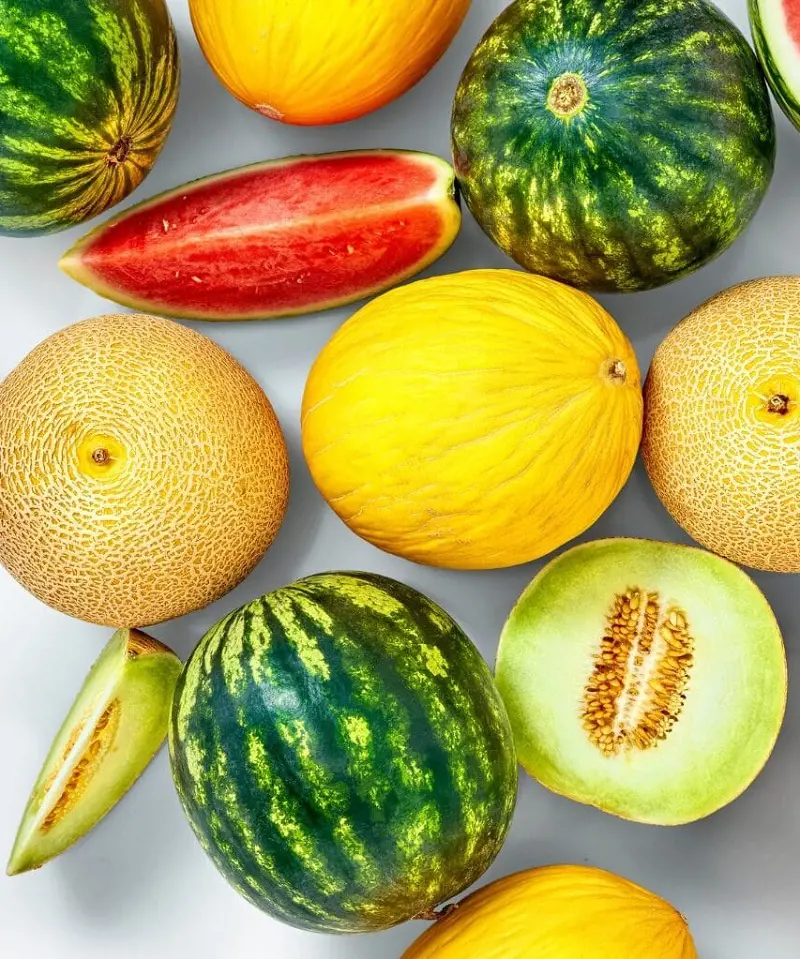
Melon is a fruit with the least calories. A mere 1-cup serving or 150–170 g of melon varieties like honeydew or watermelon delivers a modest 46–61 calories. Beyond their calorie-conscious appeal, melons pack a punch in fiber, potassium, and antioxidants, including vitamin C.
The abundance of water in melons aids in weight loss and enhances hydration. Melons prove versatile in culinary applications, as they can be freshly sliced, cubed, and blended into refreshing smoothies.
In a 100-gram serving, the calorie content of various melons, per USDA:
- Winter Melon: 13 calories
- Zucchini: 17 calories
- Casaba: 28 calories
- Watermelon: 30 calories
- Cantaloupe: 34 calories
- Persian Melon: 34 calories
- Honeydew: 36 calories
2. Papaya
Papaya is a tropical fruit with low-calorie content, making it a nutritious and delicious addition to a balanced diet. In a 100-gram serving, this fruit provides approximately 32 calories. Beyond this, papaya packs essential nutrients, including vitamins A and C, folate, and dietary fiber.
This tropical fruit satisfies your sweet cravings while contributing to your overall well-being, offering a refreshing and nutrient-packed snack option. Whether enjoyed on its own or added to fruit salads, smoothies, or desserts, papaya brings flavor and nutritional benefits to your table.
3. Peach
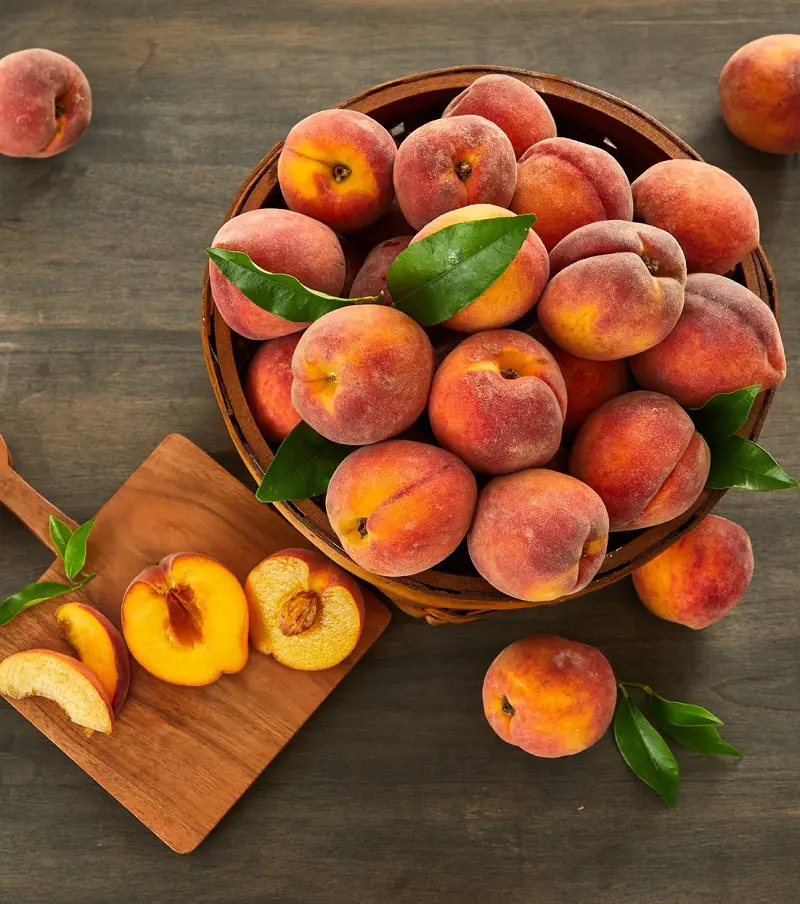
Peaches are a tasty and low-calorie fruit. In a 100-gram serving, peaches contribute approximately 39 calories. Besides their sweet and juicy taste, this fruit offers a range of health benefits. They are a good source of vitamins A and C and dietary fiber.
The low-calorie content makes peaches a smart choice for those looking to manage their calorie intake while still enjoying a flavorful and nutritious snack. You can enjoy this fruit either fresh or by chopping it into salads, mixing it into smoothies, and adding it to desserts.
4. Plum
These delicious plums are relatively low-calorie yet highly beneficial fruit. With approximately 46 calories per 100-gram serving, plums offer a sweet and satisfying flavor without significantly contributing to overall calorie consumption. It makes them an excellent choice for snacking or incorporating into various dishes, allowing individuals to enjoy their natural sweetness while maintaining a balanced diet.
Beyond their moderate calorie content, plums are rich in fiber and vitamins A and C. You can enjoy their sweet and slightly tart flavor by having them fresh as a snack, adding them to fruit salads, or using them in making jams and preserves.
5 Grapefruit
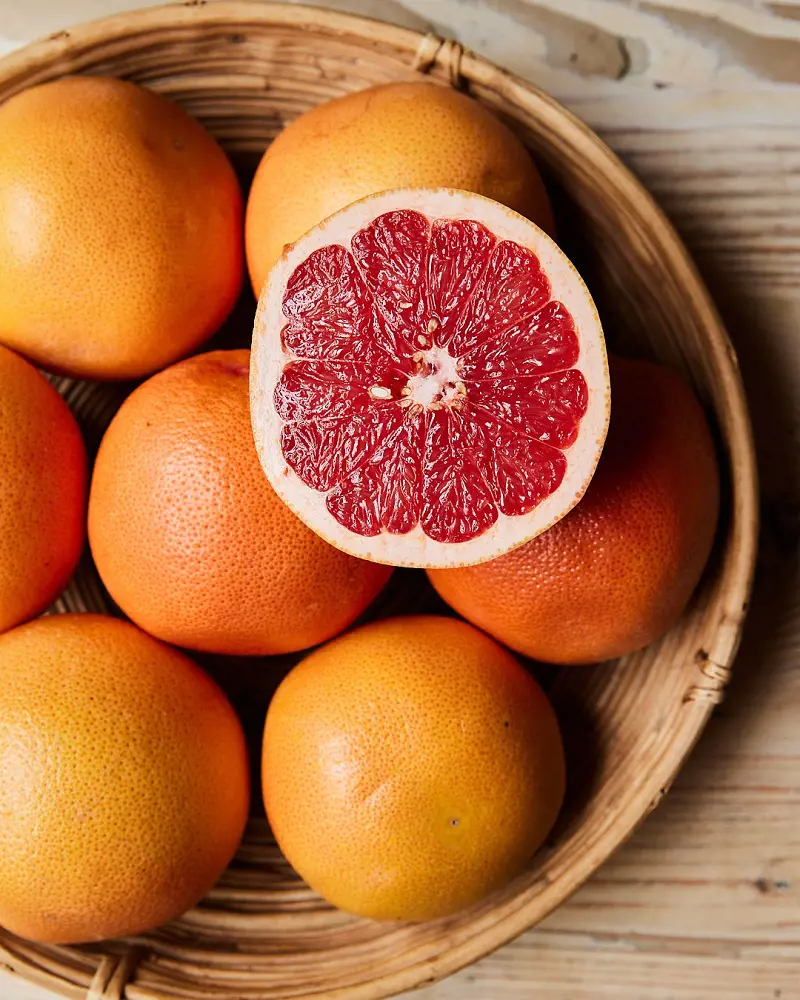
Grapefruit is low in calories, as a 100-gram serving supplies 42 calories. Grapefruit has a high water content, comprising around 91% water. The abundance of water in the fruit adds volume without extra calories and promotes hydration and a sense of fullness.
In addition, this fruit is a good source of dietary fiber, with 1.6 grams per 100 grams. It is naturally low in fat and does not include cholesterol. The absence of unhealthy fats helps keep the calorie count down while providing essential nutrients and antioxidants.
6. Oranges
Oranges are considered low in calories primarily due to their high water content and nutrient density. Only 100 grams of oranges provides about 47 calories. Comprising about 86% water, it's hydrating and filling, contributing to a lower calorie density.
The water content not only adds volume to the fruit without additional calories but also aids in promoting a sense of fullness, potentially helping individuals control their overall calorie intake. Beside this, oranges are rich in dietary fiber, with around 2.4 grams per 100 grams. This high water content and fiber combination makes this fruit a satisfying and low-calorie snack option.
7. Apricot
Apricots are known for their health benefits and low-calorie profile, with a 100-gram serving delivering around 48 calories. It's all due to the fruit's composition, which includes a notable water content of around 86%. The high water content contributes to its juiciness and dilutes its caloric density.
It's also a good source of dietary fiber, naturally low in fat, and includes only trace amounts of saturated fats. With their combination of high water content, fiber, and minimal fat, this fruit is a flavorful and nutrient-rich option for individuals seeking a low-calorie yet satisfying addition to their diet.
8. Cherries
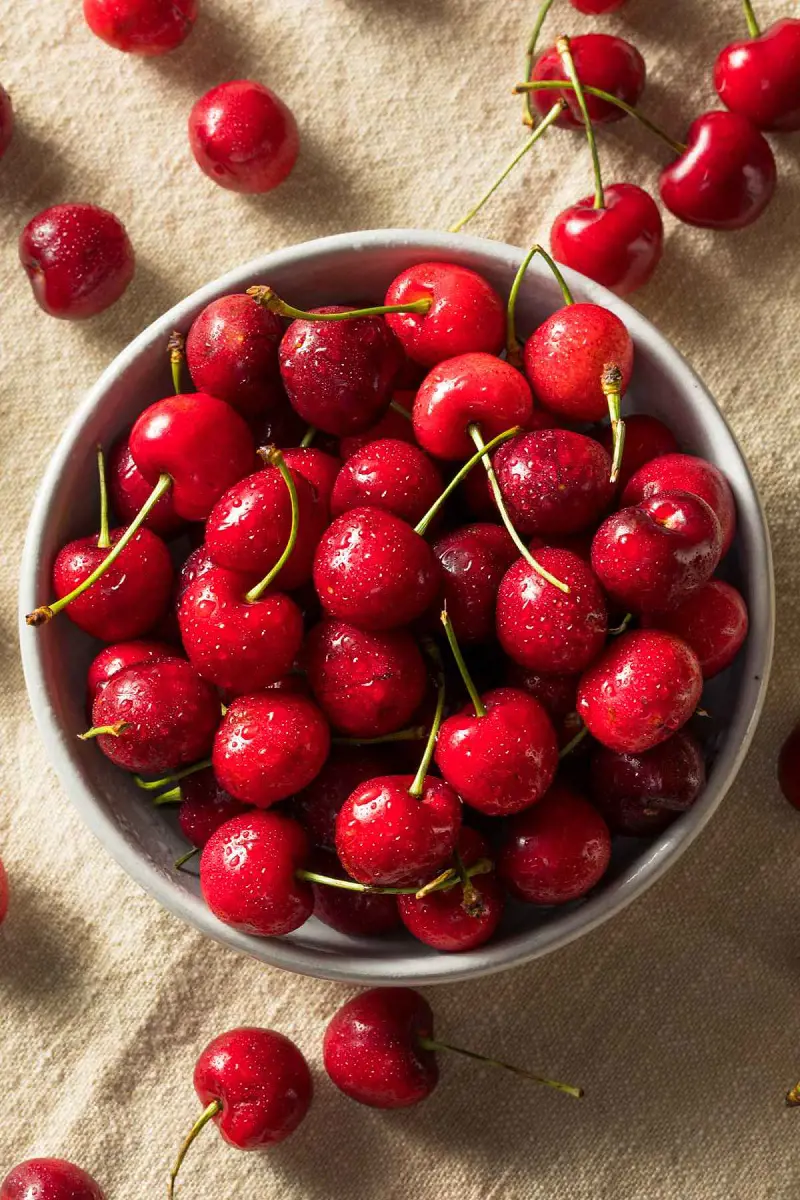
Cherries are a satisfying and nutritionally beneficial fruit that is low in calories, with a 100-gram serving supplying 50 calories. It has around 80% water content, contributing to its refreshing taste and hydration.
This stone fruit cherry also possesses a moderate amount of dietary fiber, which assists in weight management by lowering overall calorie consumption. Besides this, it's abundant in antioxidants, such as anthocyanins, which have anti-inflammatory effects and may contribute to overall well-being.
9. Berries
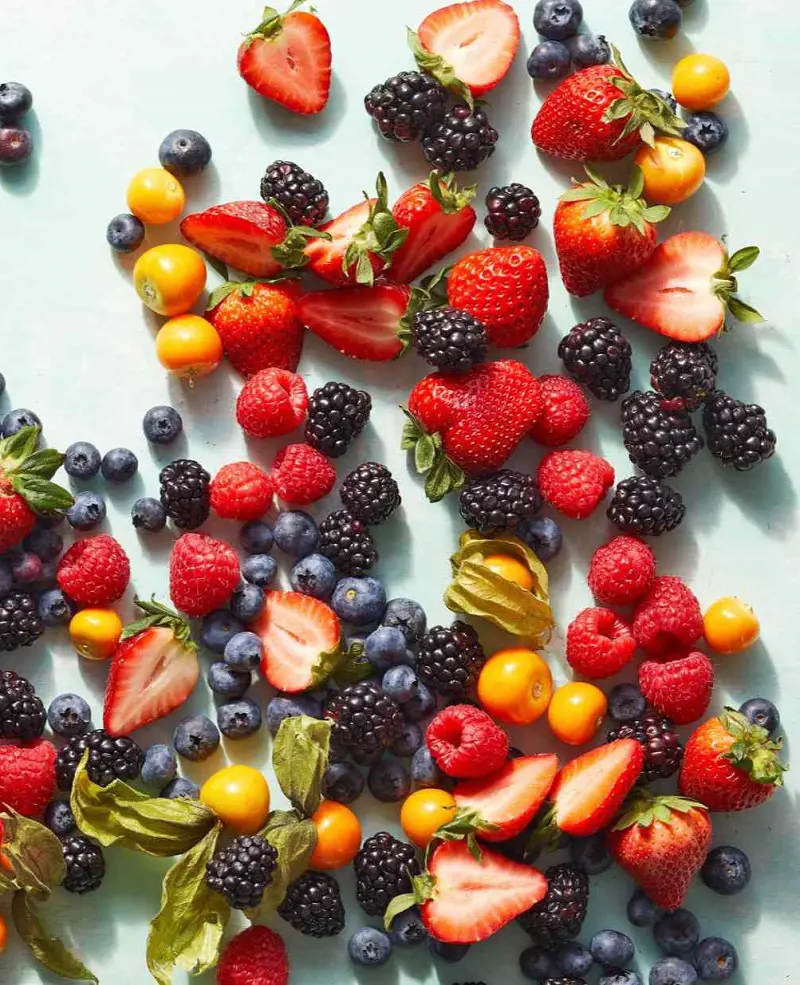
Berries are fruits with low calories, as the calorie content per 100 grams or 3.5 ounces of berries ranges from 32 calories for strawberries to 57 calories for blueberries, per Healthline. This low-calorie profile is due to their high water content.
Additionally, berries are rich in dietary fiber, which enhances their low-calorie nature. Besides this, they are packed with antioxidants, vitamins, and minerals. The low calories, high water content, fiber, and nutritional content make varieties of berries a delicious and healthy addition to a balanced diet.
10. Pineapple
Pineapple, with its tropical sweetness, is a delicious fruit with the lowest calories. A 100-gram serving of pineapple supplies 50 calories. It is partly due to its high water content, which accounts for about 86% of the fruit's composition. Besides this, it has a dietary fiber of 1.4 grams per 100 grams.
Also, it's rich in essential nutrients, including vitamin C, manganese, and antioxidants. While enjoying the natural sweetness of pineapple, individuals can also appreciate its low-calorie nature, making it a versatile and guilt-free addition to various dishes and a refreshing option for those focusing on a calorie-conscious diet.
11. Apples
Apples offer a sweet and crisp taste with a modest caloric impact. Merely 100 grams of apples deliver around 52 calories. It has a high water content of about 86%, ensuring caloric density remains relatively low. It's also rich in dietary fiber, with roughly 2.4 grams per 100 grams.
Beyond this, it's a good source of vitamins, particularly vitamin C, and antioxidants. As a result, it is an excellent choice for those aiming to maintain their weight. Whether enjoyed on its own or incorporated into various dishes, this apple provides a tasty and nutritious snack that lines up with a low-calorie lifestyle.
12. Dragon Fruit
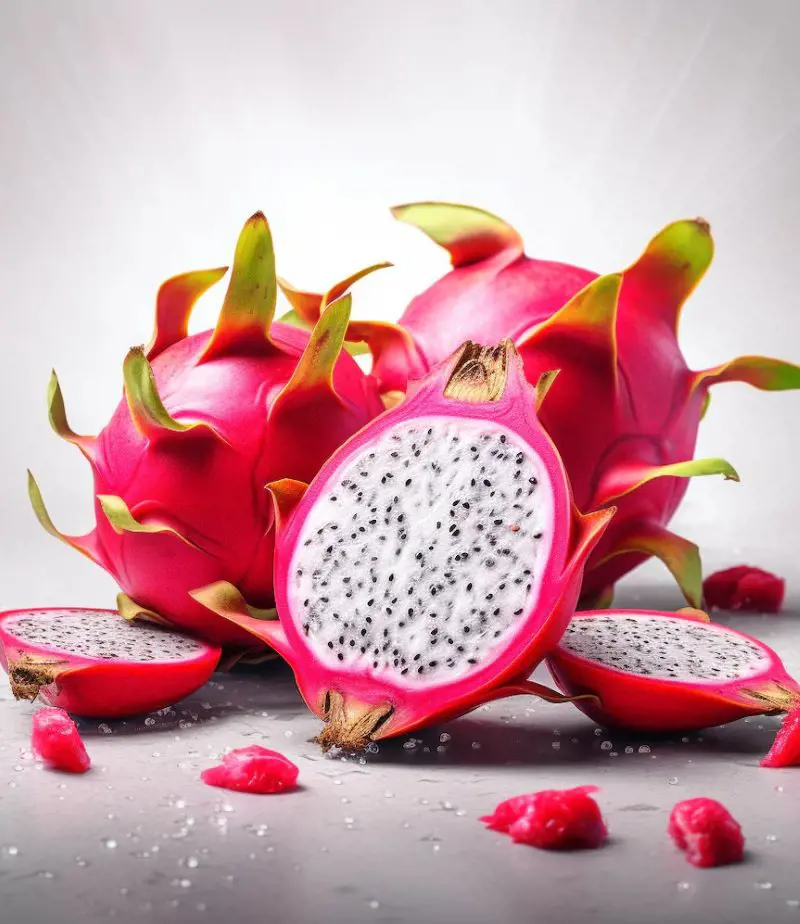
Dragon fruit, known for its vibrant appearance and refreshing taste, is a fruit that is low in calories. Only 100 grams of apples supply around 60 calories. It includes a high water content of about 84% of the fruit's weight, which helps keep the calories at a modest level.
It's high in essential nutrients like fiber, Vitamin C, and antioxidants. Despite its sweetness, dragon fruit is also relatively low in sugar, making it a nutritious and guilt-free option for individuals focused on a balanced, low-calorie lifestyle.
13. Mango
Mangos are a delicious yet relatively low-calorie fruit. A 100-gram of mango provides around 60 calories. The moderate calorie content is partially due to the fruit's high water content, comprising 80% to 85%, which contributes to its juicy and succulent texture and maintains a favorable caloric density.
While mangoes are naturally sweet, they also offer essential nutrients, including fiber and vitamins A and C. They are relatively low in fat and sodium. As a result, this fruit is a delightful and nutritious addition to a well-balanced diet, which you can enjoy fresh, sliced, or mixed into smoothies and salads.
14. Kiwi
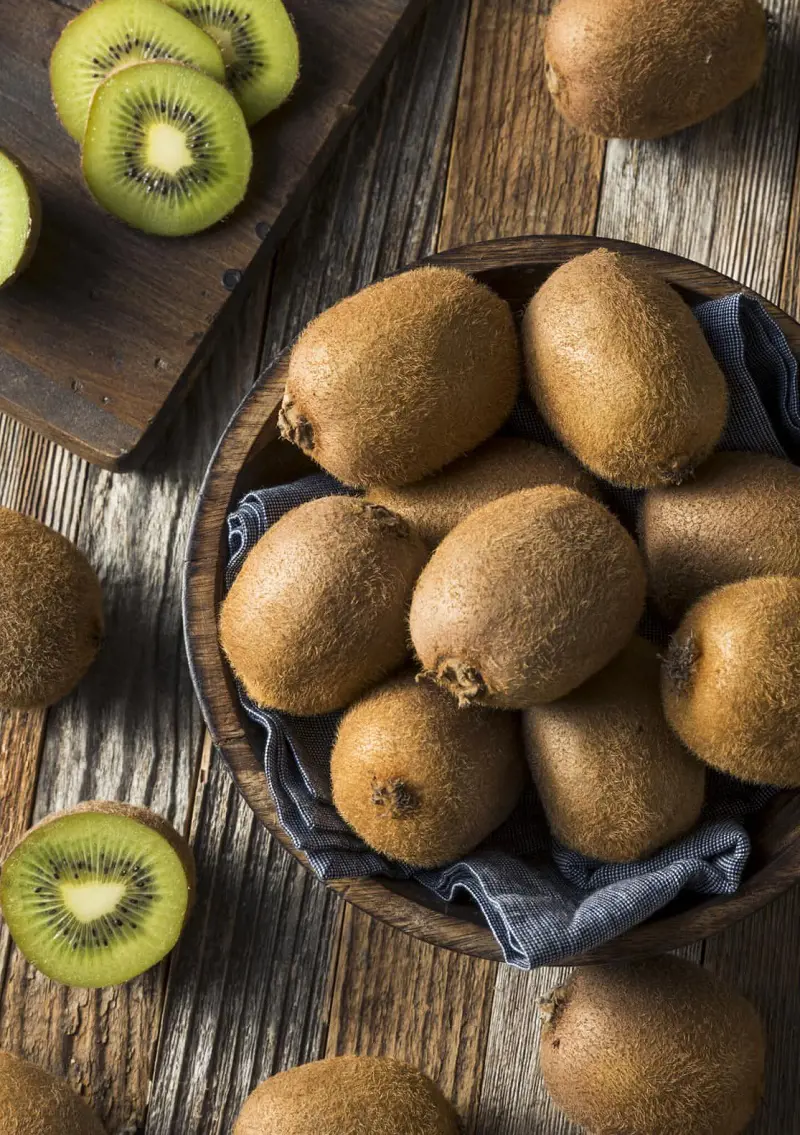
Kiwi is a low-calorie fruit with its vibrant green flesh and distinctive flavor. Only 100 grams of kiwi supplies 61 calories. It has 83.1% water content and around 3 grams of dietary fiber in 100 grams.
In addition to being low in calories, it's a nutritional powerhouse loaded with vitamin C, vitamin K, and antioxidants. As a result, kiwi is a nutrient-dense fruit that can be enjoyed on its own, added to fruit salads, or blended into smoothies.
15. Grapes
Grapes are low-calorie fruits with their natural sweetness and convenient bite-sized nature. A 100-gram serving of grapes provides around 67 calories. All thanks to its water content of about 80% makes this juicy fruit a hydrating and satisfying choice for those mindful of their calorie intake.
It also includes natural sugars in the form of fructose, but the overall balance of water, fiber, and sugars contributes to its reputation as a nutritious, low-calorie fruit. Besides this, it packs antioxidants, fiber, and other essential nutrients.
Recent posts
Nutrition
Nutrition
Liquorice Root: Benefits And Uses
You can spell it liquorice or licorice; this herb or root has been in use for centuries in most medicinal applications, as a natural sweetener and to enhance flavors. Regarding its origins, it comes from the root of the "Glycyrrhiza galbre" plant and...
Nutrition
Is Ramen Healthy? Here's What Dietician Says
Ramen is a traditional dish from Japan that in the recent era has become a global phenomenon. This beloved and comforting soupy dish however has been questioned, when it comes to its nutrition. Best for those looking for a quick (instant), affo...
Nutrition
Is Wheat Bread Healthy? An Expert Picks
Wheat bread has been proudly celebrated as a dietary staple in countless homes for as long as people can remember. It has earned a reputation as a healthier alternative to white or any other processed bread, that no one can deny. Because of its evide...
Nutrition
Is Sausages Healthy? Nutrition And Health Benefits
Sausages are tasty in an addictive way, making them one of the most popular foods worldwide. You may have enjoyed this convenient food often, whether on a bun with mustard or grilled on a barbecue, the simple preparation methods are what makes its co...
Nutrition
Ice Cream Benefits: Nutrition, Potential Risks And Best Choices
Not gonna lie, ice cream is often taken as a guilty pleasure treat, a delightful treat that takes you to cloud nine but is frequently associated with negative health implications. Nonetheless, the happy news is when devoured mindfully, ice cream can ...
Nutrition
Is Sushi Healthy? Some Good and Bad Choices
Sushi is a wholesome meal and a beloved Japanese dish. The traditional sushi recipe is a simple combination of fresh fish, vegetables, and vinegared rice which is popular for its minimalistic preparation. As with any food, there are factors that dete...


